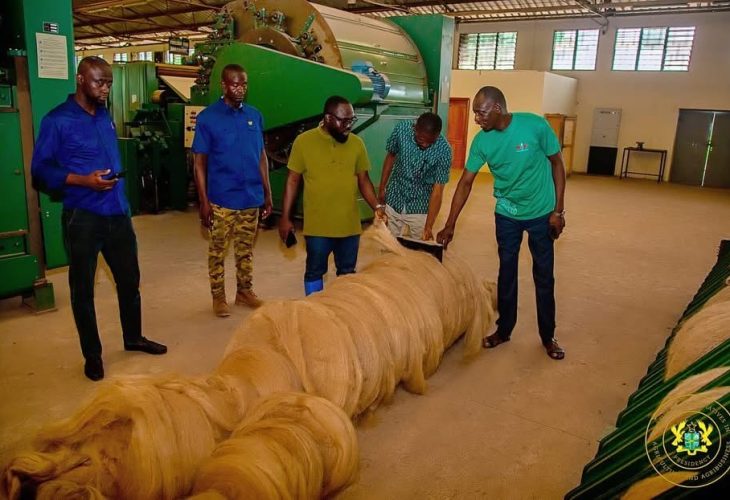Government to commercialize Kenaf Jute production – Dr. Otokunor
- Home
- Government to commercialize Kenaf Jute production – Dr. Otokunor

02May’25
The Government of Ghana is set to commence commercial production of kenaf fiber as part of a strategic initiative to develop a sustainable jute value chain to create jobs and to reduce Jute production.
Speaking at the CropLife Ghana Annual General Meeting for CEOs and Managing Directors, held in Accra, Dr. Peter Boamah Otokunor, Director of Presidential Initiatives in Agriculture and Agribusiness, revealed details of the upcoming project aimed at transforming the kenaf industry.
Dr. Otokunor bemoaned how Ghana spends several million of dollars importing jute sacks into the country “I must state that Kenaf plants can be grown in every part of the country. Averagely every year, Ghana imports about 30 million jute sacks into the country every year which can be quantified to about 60 million dollars every year.
“What we’ve decided to do with the Jute Value Chain Development Initiative is to focus on developing the entire value chain. We are currently finalizing an agreement with private sector players to begin commercializing kenaf seed production” he added
“We’re looking at setting up cooperatives, providing them with training and input assistance so that we can produce kenaf fiber locally to feed the jute industry in Ghana”.
Meanwhile, Dr. Peter Boamah Otokunor, has also announced plans by the government for the commencement of the Youth Agriculture Estate Programme which is aimed at tackling youth unemployment through agriculture. He made this pronouncement during his address at the CropLife Ghana Annual General Meeting for CEOs and Managing Directors, held at the Mensvic Grand Hotel in Accra.
According to Dr. Otokunor, the programme is designed to create thousands of stable employment opportunities for young people in the agricultural sector, particularly in high-value crops, poultry, and agro-processing.
“Youth unemployment currently on a high, which is driven largely by limited job opportunities, inadequate skills training, and restricted access to arable land, this initiative is tailored to address these gaps by creating stable employment for the youth in commercial agriculture.” he said.
The Youth Agriculture Estate Programme is expected to generate 16,000 direct jobs, targeting key sectors in agriculture, and will operate under a unique model involving state-led and private sector driven agricultural estate.


Leave Your Comment